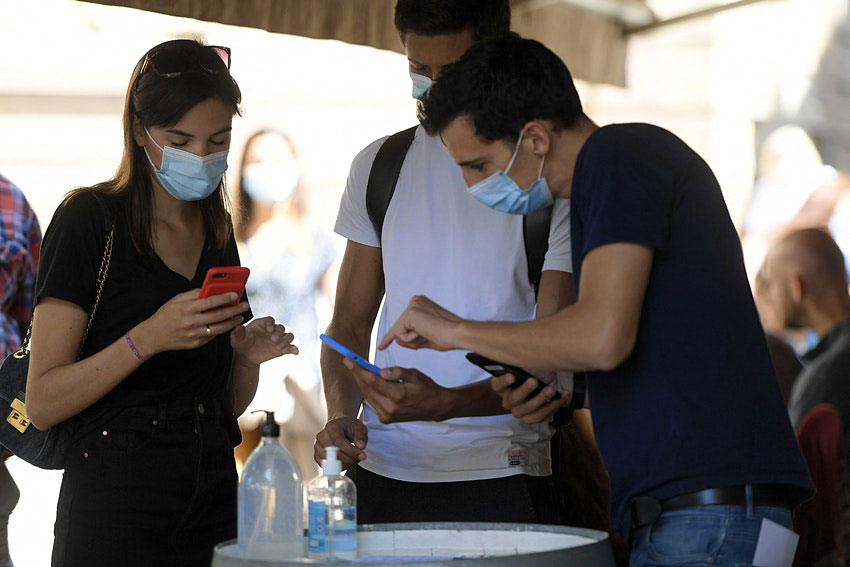
The FDA has approved COVID-19 booster shots
TripFalcon September 26, 2021
Last Update: 2021-09-25 21:59:01The US government has moved forward with plans to make COVID-19 booster shots available to Americans by approving additional Pfizer jabs for people over 65, and those considered high-risk. For now, boosters are not recommended for anyone beyond the most vulnerable category—but if this trend continues, is it likely people will need to review their vaccines before planning any overseas trips?
From today, Americans aged 65 or over who received their final dose of a vaccine six months ago arei eligible to receive a third shot of the Pfizer vaccine, amid fears of waning immunity and the Delta-driven surge. Those aged between 18 and 64 who are considered "high-risk for severe illness or exposure to COVID-19" can also receive a third shot following the US Food and Drug Administration (FDA) approval of the Pfizer vaccine as a single-dose booster shot.
It's part of a national booster shot program that could eventually be rolled out to the wider population, though details have yet to be finalized. Dr. Janet Woodcock, the acting FDA commissioner, said "as we learn more about the safety and effectiveness of COVID-19 vaccines, including the use of a booster dose, we will continue to evaluate the rapidly changing science and keep the public informed."

Croatia has set an expiry date on vaccine passports/certificates for travelers © Roman Babakin / Shutterstock
If booster shots become the standard, will individuals need to regularly update their vaccine credentials before travel? Here's what the situation looks like so far.
Vaccine deadlines for travelers
A similar roll-out is being implemented in Europe, and it particularly affects travelers. Last month, Croatia became the first country in the EU to add an expiry date to vaccine passports in line with when the holder was inoculated. According to the government, travelers need to present a negative COVID-19 test result to enter Croatia if more than 270 days (nine months) have passed since their last dose of an approved vaccine. Austria also placed a 270 day maximum validity period on their vaccination certificates for travelers.
If this trend continues, it's possible that travelers will need to stay up-to-date with their vaccines before planning any international trips. "There are currently recommendations for regular boosters for many vaccines, particularly for international travelers, including influenza, hepatitis A, yellow fever, typhoid, etc.," Dr. Bob Bollinger, a professor of infectious diseases at the John Hopkins University School of Medicine, tells Lonely Planet. "Since travelers already should review their vaccinations prior to their overseas trips and get boosters as needed, it would not be a major issue to add COVID-19 vaccines to the list."

Austria has set out a 270 day limit on vaccine validity © Rastislav Sedlak SK / Shutterstock
Seasonal shots
In the UK, the government is expected to implement a booster campaign in early October following recent recommendations from the Joint Committee on Vaccination and Immunisation. "Introducing a booster programme will help to prolong protection in those most at risk from this virus and reduce hospitalisations as we head into colder weather and what will be a challenging period for our health service," Health Minister Robin Swann said in a statement.
With yet another national booster shot campaign receiving the green-light, is it possible that we could see these vaccines continually administered on a seasonal basis, particularly as more COVID-19 strains emerge? According to Dr. Bollinger, we'll have to wait and see. That's because there's still much uncertainty about the need for boosters, and how often they might be required. "It is certainly possible that boosters will be needed periodically for COVID-19. But we don’t yet know how frequently boosters might be needed. We also don’t yet know if, like flu vaccinations, we might need booster vaccinations that are periodically modified to protect against new SARS-CoV-2 strains," he explains.
In the meantime, if you're planning to travel and are concerned your destination may no longer consider you to be fully vaccinated, check the local embassy or tourist board website for information on entry requirements. There may be alternative solutions such as the option to present a negative COVID-19 test result instead.

It's likely people will need to be vaccinated seasonally © AFP/Getty Images
It's worth noting that while some nations are planning to administer third shots to their populations, the World Health Organization (WHO) fears that it comes at the expense of millions of people around the world who have yet to receive a single dose of a vaccine for protection.
"We're planning to hand out extra life jackets to people who already have life jackets, while we’re leaving other people to drown without a single life jacket," Dr. Mike Ryan, director of the WHO's emergency programme, told reporters in August.

